Iran elections: Five things to know
- Published
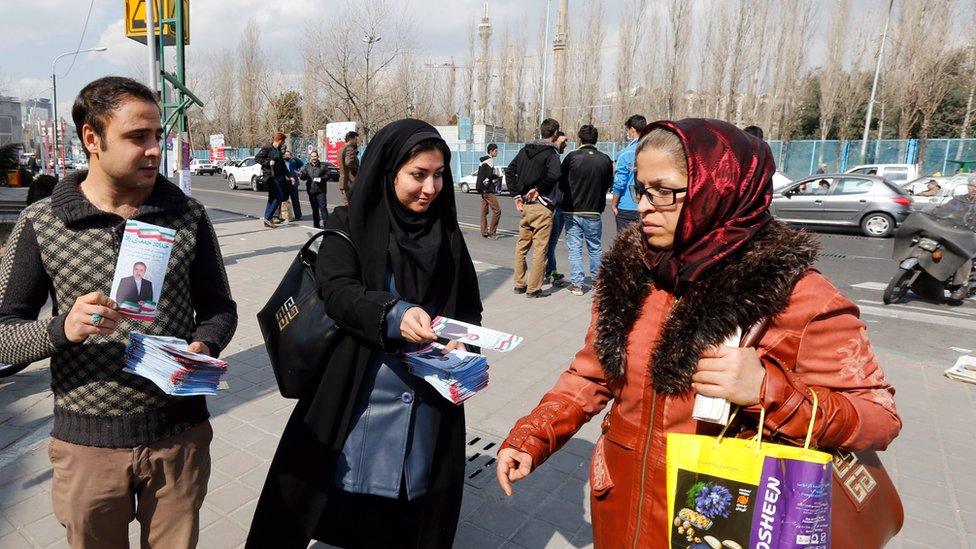
Reformists and conservatives will be trying to increase their influence
Iranians go to the polls on 26 February in key elections: one for a new parliament, and the other for the top clerical body that appoints the country's most powerful official, the Supreme Leader.
The ballots, which are the first in Iran since the nuclear deal and the lifting of sanctions, will test the public mood and indicate the direction the country is heading.

Does Iran's parliament really matter?
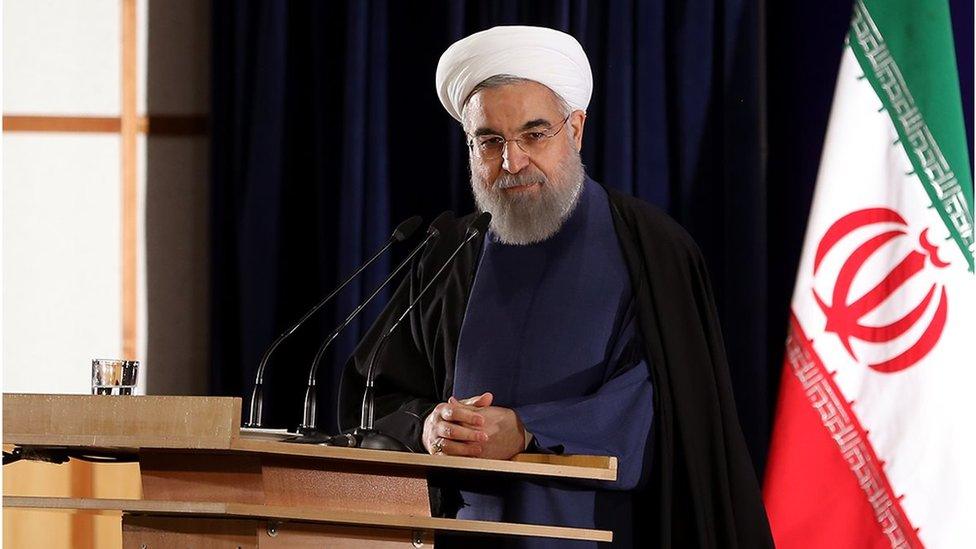
President Rouhani received praise after the nuclear deal ended years of stand-off with the West
There are 290 MPs - and some 6,000 candidates. There are no real political parties but MPs divide into blocs, some supporting a moderate agenda, others taking a hardline stance.
Since President Hassan Rouhani signed the nuclear deal last July, the struggle between these two camps has intensified, with hardliners resisting his attempts to follow success on the foreign policy front with political reform at home.
MPs must approve all cabinet appointments and new legislation. So the president needs a good working relationship with parliament in order to make things happen.
President Rouhani is now more than half-way through his first term and needs backing from MPs to push through long-awaited economic reform as well as to support his bid for re-election in 2017.
Iran nuclear deal - explained in 2 minutes

What's so important about the Assembly of Experts?
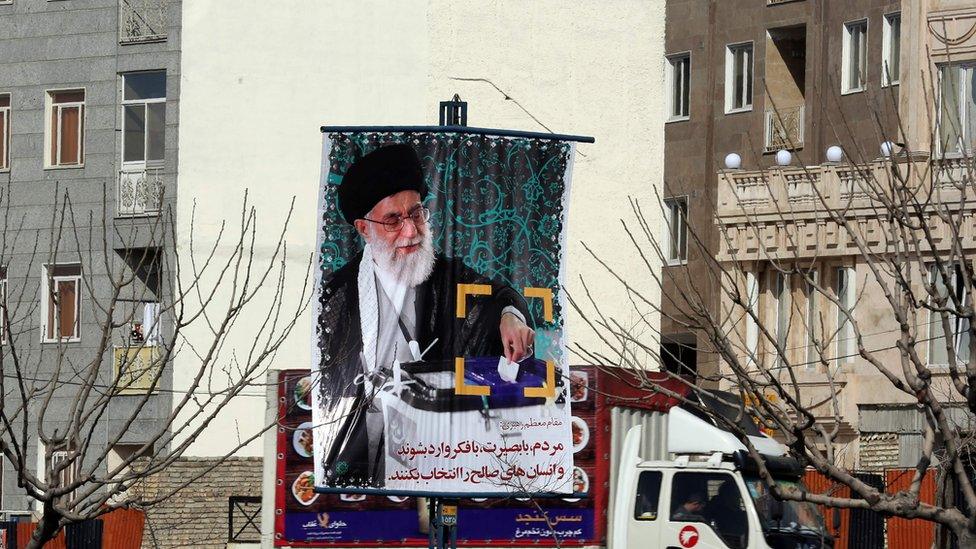
Ayatollah Khamenei has been in poor health and the Assembly of Experts may have to choose a successor
This is Iran's top clerical body, and it chooses the country's most important official - the Supreme Leader.
The Assembly sits for an eight-year term, so it will have a far longer influence on Iranian politics than parliament.
The current Leader, Ayatollah Ali Khamenei, is 76 years old, and has suffered poor health, so it is possible that the next Assembly of Experts will have to choose his successor. That has given an added impetus to this year's vote.
A total of 161 candidates are contesting 88 Assembly seats. As in parliament there is intense rivalry between hardline conservatives who dominate the Assembly, and more moderate candidates.
Many moderates have been disqualified, among them Hassan Khomeini, the well-connected grandson of Ayatollah Khomeini, the founding father of the Islamic Republic.
President Rouhani and former President Akbar Hashemi Rafsanjani are standing for re-election, are expected to try to form a bloc of more moderate members to reduce the influence of the ultra-conservatives on the Assembly.

What are the key issues in these elections?
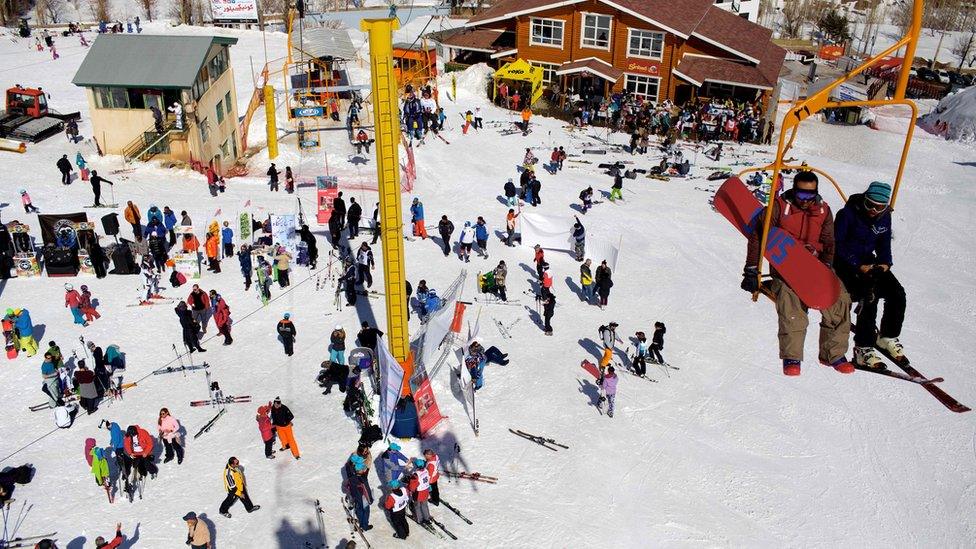
Tehran hopes its tourism sector will grow as the economy opens up
The Economy
Iran is in a serious recession, and despite all the good news about sanctions being lifted, the economy will need a major overhaul before the country can really turn a corner.
For parliament this means working with the president and government to address the huge expectations of ordinary people for change, while implementing wide-scale structural reform which is likely to bring pain as well as gain.
Iran is back in business for now
Politics
Iranian politics has become far more fractured in the past decade.
The traditional split between conservatives and reformists has now evolved with the conservatives dividing into hardline and more pragmatic factions, while many reformists have moved closer to the pragmatic centre.
Observers say this makes it more difficult to predict who people will vote for and which way MPs will themselves vote on key issues once they have won their seats.
Local versus central
Parliament deals mainly with domestic issues and outside of the highly politicised big cities, people tend to vote on local issues.
So MPs who promise to tackle local problems and are well-known and liked by voters could gather big support regardless of where they fit on the political spectrum.

Do Iranians care?
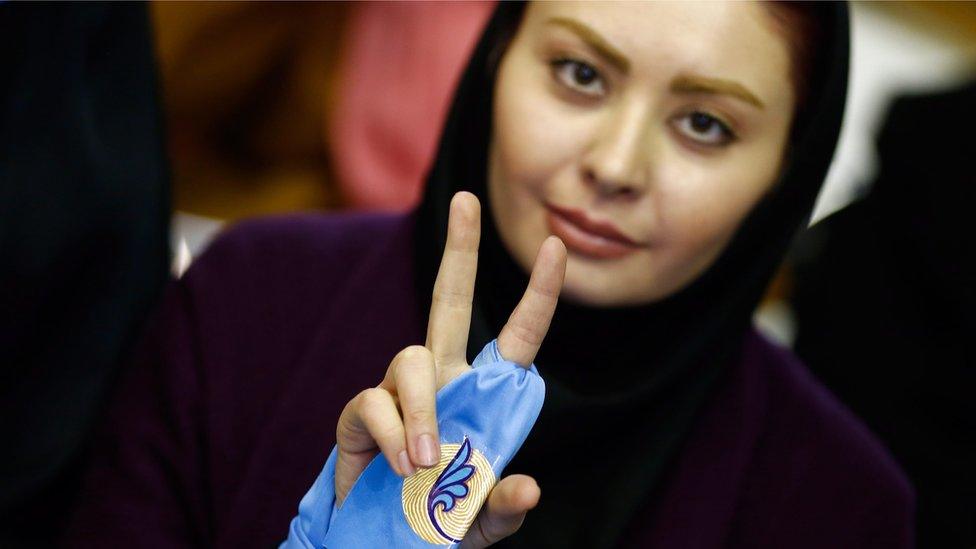
Reformist supporters remain optimistic
So far the election campaign has been fairly low-key, and has not generated a lot of public debate. But that could change.
The campaign lasts just seven days and many voters make up their minds at the very last moment
Around 55 million people are eligible to vote. Most Iranian voters see elections, however flawed, as their one chance to influence the system.
This is especially true since the nuclear deal with most voters wanting to see President Rouhani continue to deliver the reform he promised after his victory in 2013.
Hopes were dented after Iran's top election-vetting body, the Guardian Council, disqualified nearly 6,000 prospective parliamentary candidates, most from the reformist and moderate camps.
Around 1,500 candidates were subsequently reinstated on appeal.
Many voters, especially younger people, complain that they still face a very limited choice and on social media there is much discussion about whether to vote or not.
BBC Persian's social media team say in recent days a new hashtag campaign, #ImVoting, is slowly beginning to gather pace.
Fighting human rights abuses with cartoons

What are the key dates to watch?
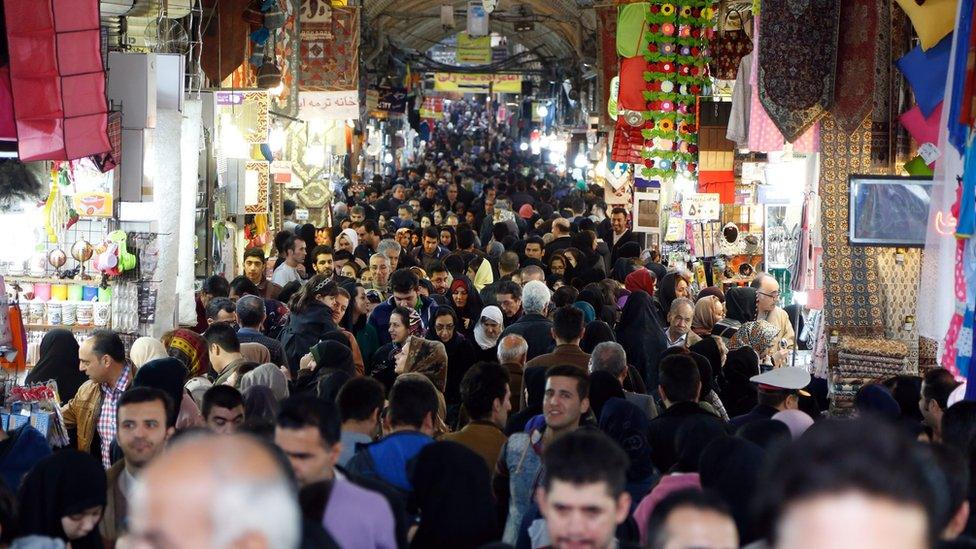
Iran has a young population keen to improve their economic situation and determine their future
The campaigns for both elections run until 08:00 (04:30 GMT) on 25 February. The polls open at 08:00 the next day and are due to close at 18:00, but they are usually extended for a few hours.
The Assembly of Experts result will be announced within a couple of days.
The parliamentary election is likely to go to a second round. Candidates need at least 25% of the vote to win outright, which is more difficult when so many people are standing.
The initial results will be made public shortly after the Assembly results, and the run-off will be held in April.
BBC Persian's Rana Rahimpour, Hossein Bastani, Golnoosh Golshani, and Jenny Norton contributed to this report.